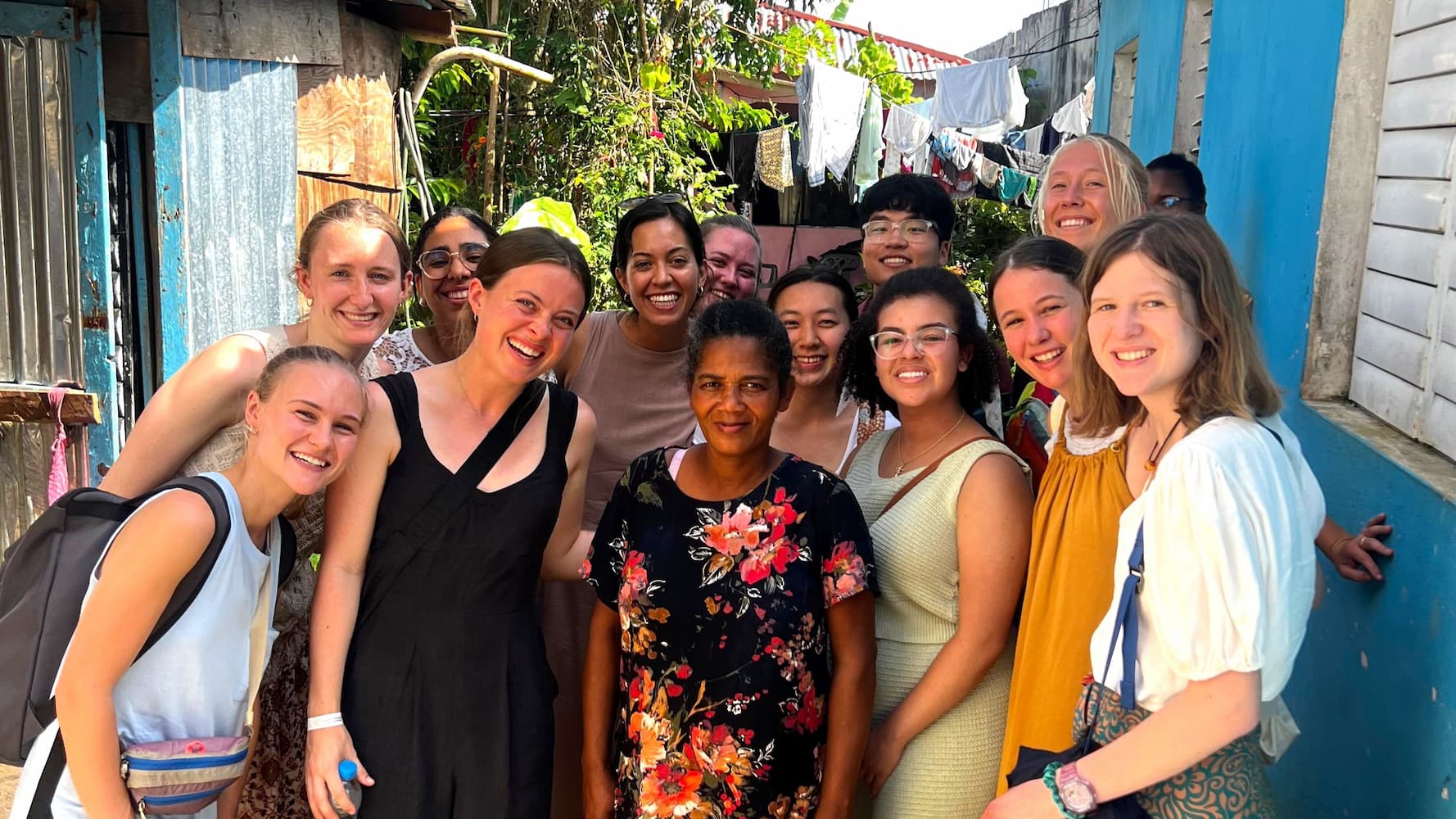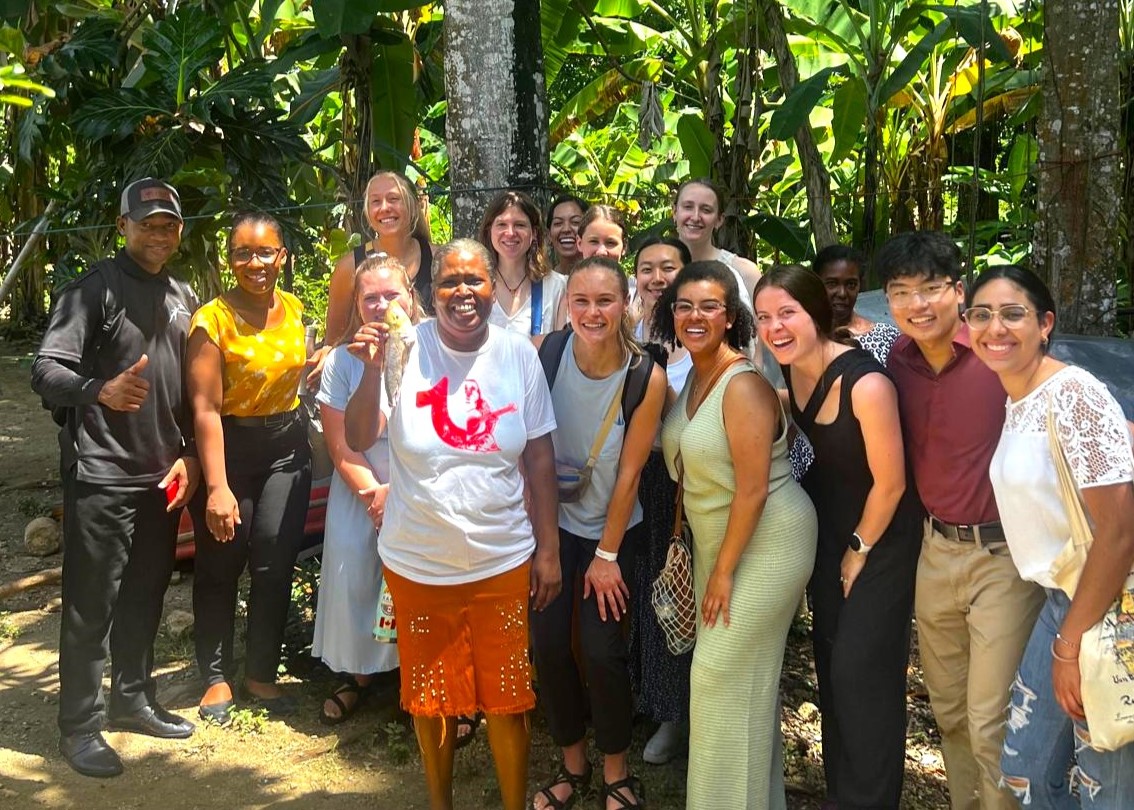By Savannah Jeffery, 2024 Executive Writing Intern (pictured above, top left)
If you look closely in one of Peter Greer’s early books, there’s a picture of me and my sister, proudly holding little glass jars filled with beans and a small shallow candle nestled in the center. When we snapped that photo at our church’s Christmas market, I didn’t know much about what HOPE International did. Little did I know that following my sophomore year at Wheaton, I’d be interning with HOPE, helping Peter write more books! From making bean candles as a child to now interning with HOPE’s executive team, here are some lessons I’ve learned throughout my journey with HOPE.
The joy of selling your own products
“We’ll make bean candles!” I grew up in a church called Willowdale Chapel that has partnered with HOPE for 17 years. When that photo was taken, me and my sister were selling homemade candles at Willowdale’s annual Christmas market, where they gave kids in the church money to make and sell their own products—the proceeds of which went to HOPE. Selling our bean candles to smiling Willowdale members in the lobby, my sister and I were learning the principles of entrepreneurship.
At ten years old, I didn’t really know much about HOPE besides that they had a fun yellow logo and a banner of a smiling woman holding a goat. What I did understand, however, is the joy and pride that comes from making a profit from something you’ve created with your own two hands!
Empowering communities by investing in entrepreneurs
As a business/economics major at Wheaton College, I was confused about how I could marry my interest in business and economic principles to my faith in a way that would make a real difference for those in need. When HOPE staff visited Wheaton, I was reminded about that organization with the yellow logo—and now, with some business education, I was fascinated by their approach. Christ-centered poverty alleviation? Providing loans for entrepreneurs? I understood these things now, and I wanted to be part of this!
As it turns out, equipping entrepreneurs is central to what HOPE does. At first, I was skeptical of microfinance. Why make people in poverty pay interest on a loan when you could instead give money for free? When HOPE took our intern class to see the work of Esperanza, HOPE’s microfinance institution in the Dominican Republic, we didn’t build roofs or hand out clothes. So what was the value in going?
What we encountered was the opportunity to visit and pray for beautifully creative and resourceful people. One woman, starting with a singular fishing boat and a small loan from Esperanza, built a fishing business that now has eight boats and employs people in her community. She expanded her business out of that initial loan, generating income for her family, creating jobs for others, and contributing to economic growth in her community.
That is why equipping entrepreneurs is one of the most sustainable ways to alleviate poverty. The dignity that came from the hard work of building entire businesses out of small loans showed in the way these men and women carried themselves.
Of course, microfinance isn’t a silver bullet. That’s where the relationship aspect of HOPE comes in.
Prioritizing relationships in everything HOPE does
Microfinance and savings groups might be impactful tools, but they are just tools. HOPE recognizes that there are many different aspects of poverty—spiritual, personal, and social as well as material. That’s why HOPE is all about relationships.
From the office to the field, HOPE fosters strong relationships. Loan officers laugh with and pray for clients, building authentic connections. One way I saw this in person was at the leadership summit where HOPE staff from around the world greeted each other joyfully, grateful for the in-person time with each other. Strong relationships are central to HOPE’s culture.
Above all, HOPE staff strive to prioritize their relationship with God, taking time out of each day to pray and seek the Lord’s will in decision-making.
Conclusion
I cannot recommend interning with HOPE more. As an intern, my opinion was valued, we spent daily time in prayer, I grew professionally, and everyone on staff was willing to connect—even board members took time to give us advice! From bean candles to book editing, I have recognized the value of investing in entrepreneurs and had the joy of working in a place that prioritizes relationships and seeks Christ first in everything they do.
Maybe you’re a business or economics student and don’t think you belong in a non-profit setting. Maybe you’ve never heard of microfinance or savings groups. Regardless of where you’re coming from, if you are passionate about investing in the dreams of underserved men and women in a sustainable, holistic way, consider HOPE!
Savannah Jeffery was a HOPE intern in summer 2024 and is working toward a business/economics major and entrepreneurship minor at Wheaton College in Illinois. She’s on the swim team at Wheaton, loves music and spending time outdoors, and is passionate about using writing to connect people, spread knowledge, and spark conversation.
Applications for HOPE’s 2025 summer internships and fellowships are now open! Browse open positions and apply—or send to someone who would be interested in this opportunity!
Pictured in header image: 2024 interns and fellows with Ana Javier Green (center), an entrepreneur served by Esperanza in the Dominican Republic



















